Luxury stores exit Russell Street, Hong Kong, once the world's priciest retail strip, amid tourist slump over Covid-19 and protests
By Vincenzo La Torre vincenzo.latorre@scmp.com
/ https://www.scmp.com/lifestyle/fashion-beauty/article/3100530/luxury-stores-exit-russell-street-hong-kong-once-worlds?utm_medium=partner&utm_campaign=contentexchange&utm_source=EdgeProp&utm_content=3100530 |
Russell Street in Causeway Bay, Hong Kong, one of the city's premier shopping destinations and often in the past the one with the world's highest commercial real-estate rents, is a shadow of its former self.
Watch brand Rolex, lingerie label La Perla, skincare brand Kiehl's and watchmaker Omega have all closed stores in the prime retail location in recent weeks, following in the footsteps of Prada, which was the first major global brand to on the street to shut up shop this year.
La Perla signed a five-year lease in September 2015 for four floors, the rooftop and external LED display at 22-24 Russell Street, Hong Kong Land Registry records show. It was paying HK$7 million (US$903,000) rent a month to Emperor International Holdings for the 6,555 square foot (609 square metre) property, or HK$1,068 per square foot, according to sources. Its lease expires this month.
Advertisement
In 2018, La Perla faced eviction from its Russell Street store after the landlord claimed the Italian brand owed HK$9.21 million in rent.
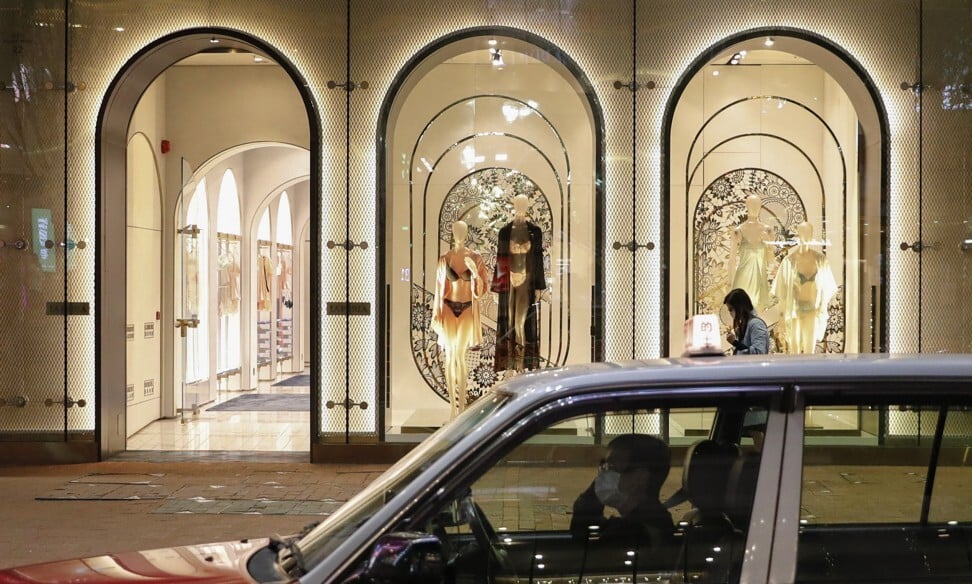
Russell Street was as empty as its luxury stores, such as that of Italian lingerie firm La Perla, in February 2020 as the coronavirus outbreak kept shoppers away. Photo: Sun Yeung alt=Russell Street was as empty as its luxury stores, such as that of Italian lingerie firm La Perla, in February 2020 as the coronavirus outbreak kept shoppers away. Photo: Sun Yeung
Kiehl's, the New York-based skincare brand owned by French conglomerate L'Oreal, was paying between HK$600,000 and HK$700,000 a month for its 800 sq foot store at 28 Russell Street.
Both it and La Perla have confirmed they are permanently closing their Russell Street stores. Meanwhile Rolex, whose store occupied a prime location next to Prada's, has downsized to a smaller boutique down the street, opened in partnership with retailer Emperor Watch and Jewellery and its sister brand Tudor.
Prada originally planned to close its Russell Street store in June 2020, but shut in early February at the beginning of the outbreak of Covid-19, the pandemic that has wreaked havoc on the global economy and has battered the luxury industry. According to consultancy Bain & Company, the global luxury market is expected to contract by between 35 per cent and 39 per cent in 2020.
Hong Kong, which before the outbreak of Covid-19 had been dealing with months of anti-government protests that caused a plunge in Chinese travellers, has been a hub for luxury shopping in Asia for years.
The protests and the pandemic have caused one of the worst economic downturns in Hong Kong's history and have taken a huge toll on the city's retail sector. The value of total retail sales in May 2020 was provisionally estimated at HK$26.8 billion, a drop of 32.8 per cent compared with the same month in 2019. Jewellery, watches, cosmetics and clothing were the worst affected categories, with a plunge in sales of almost 70 per cent for jewellery and watches alone.
Advertisement
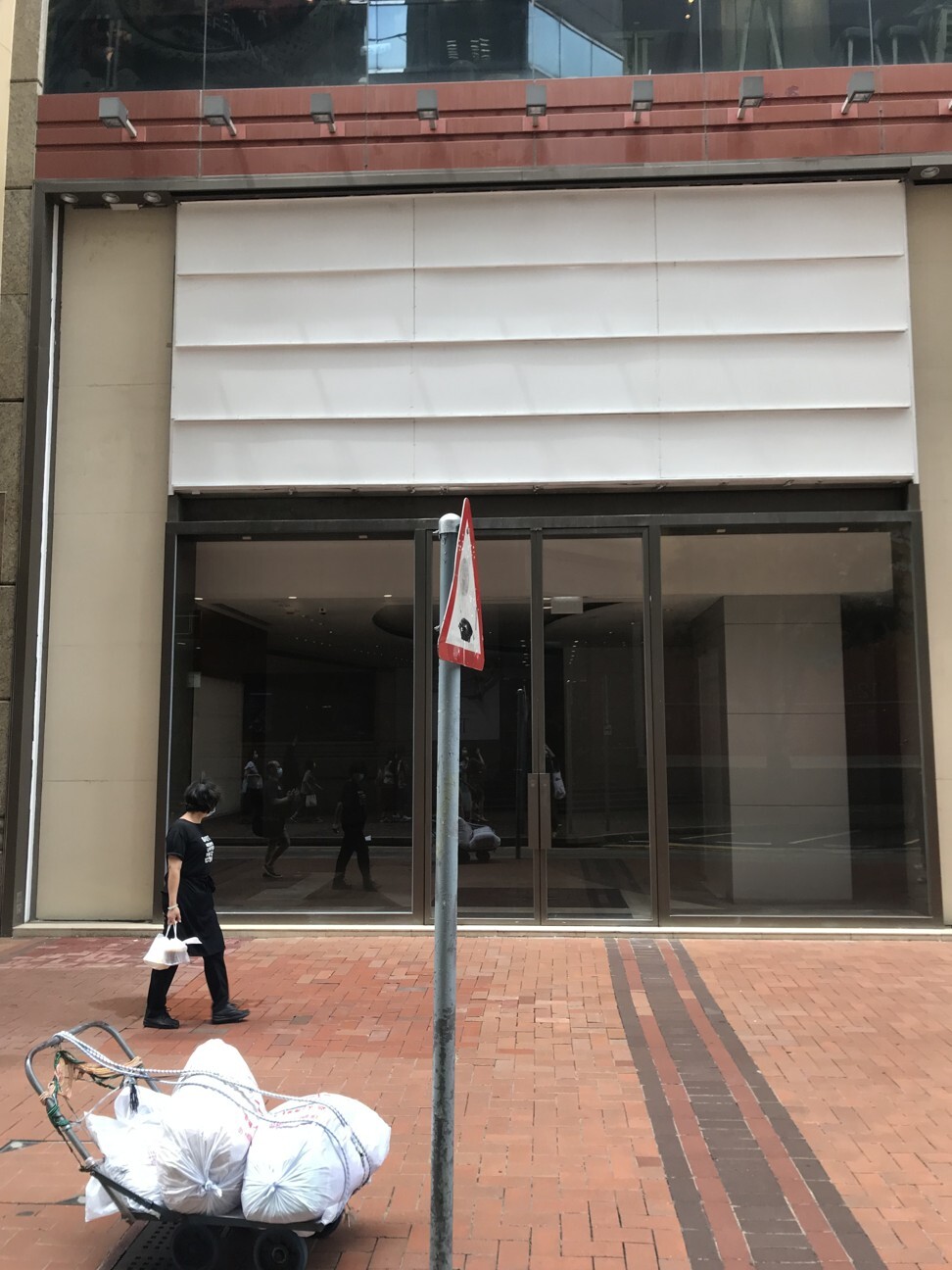
The former Rolex store on Russell Street, Causeway Bay. Photo: Vincenzo La Torre alt=The former Rolex store on Russell Street, Causeway Bay. Photo: Vincenzo La Torre
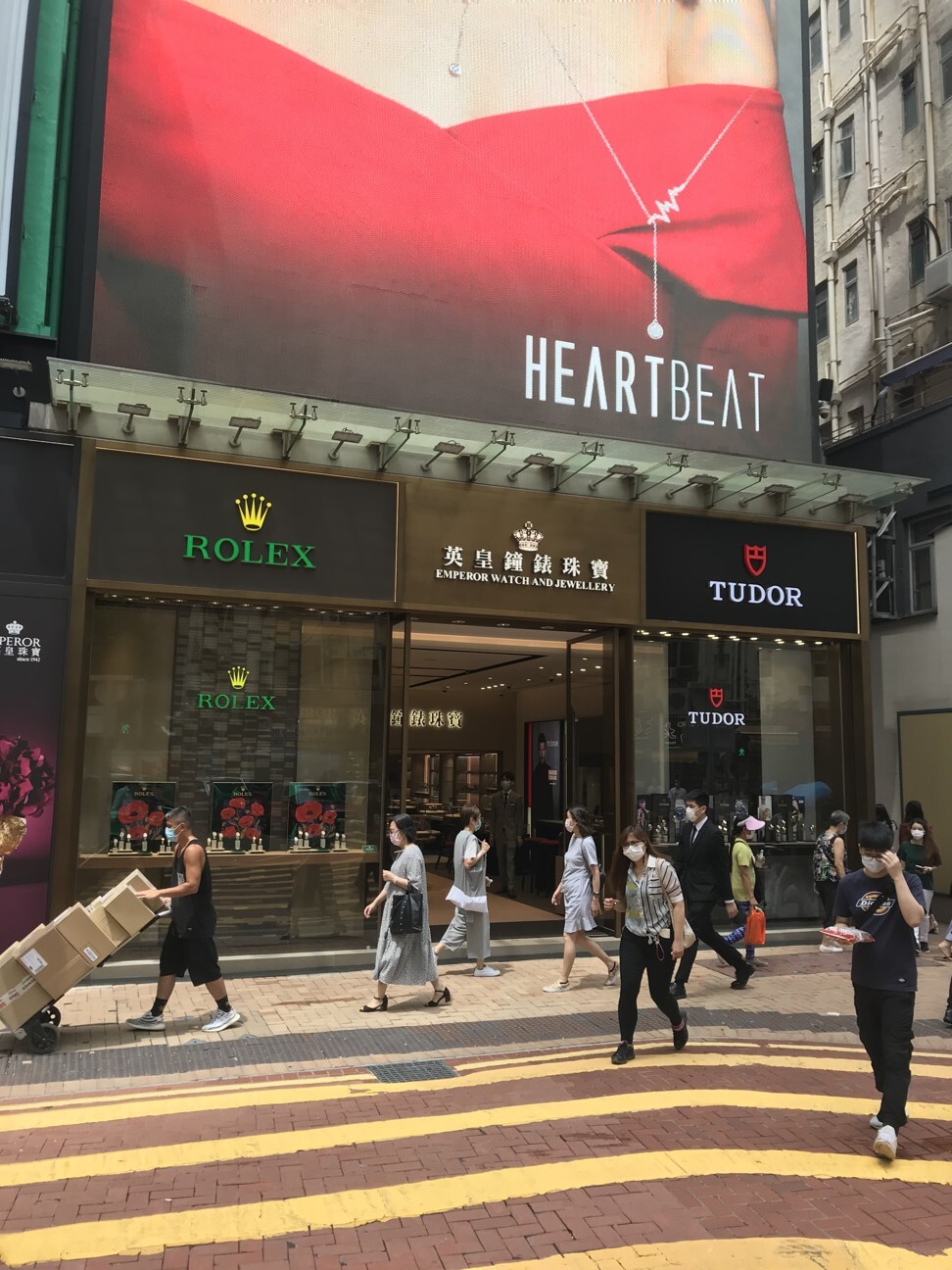
The new Rolex and Tudor stores on Russell Street. Photo: Vincenzo La Torre alt=The new Rolex and Tudor stores on Russell Street. Photo: Vincenzo La Torre
According to real-estate firm Cushman & Wakefield, rental declines have accelerated across most retail districts in 2020. Causeway Bay was the hardest hit area. In 2015 the average commercial rent in Causeway Bay was HK$2,094 per square foot, while in the second quarter of 2020 it was HK$969 per square foot, making the Tsim Sha Tsui neighbourhood on the other side of Victoria Harbour more expensive than Causeway Bay for the first time.
Vacancy rates have also continued to climb in all shopping areas, rising more markedly after the beginning of the anti-government protests in June 2019. In the second quarter of 2020 vacancies in Causeway Bay climbed to an all-time high of 7.9 per cent, while in Central and Tsim Sha Tsui in the same period they reached around 12 per cent and in Mong Kok, another neighbourhood on the Kowloon peninsula, they touched 23 per cent.
While some commercial landlords have been willing to offer rent concessions for tenants, the terms have often been less than favourable. Earlier this year a number of retailers, including fashion brands Lacoste and Moschino, staged a strike by closing their stores for a day to demand rent cuts.
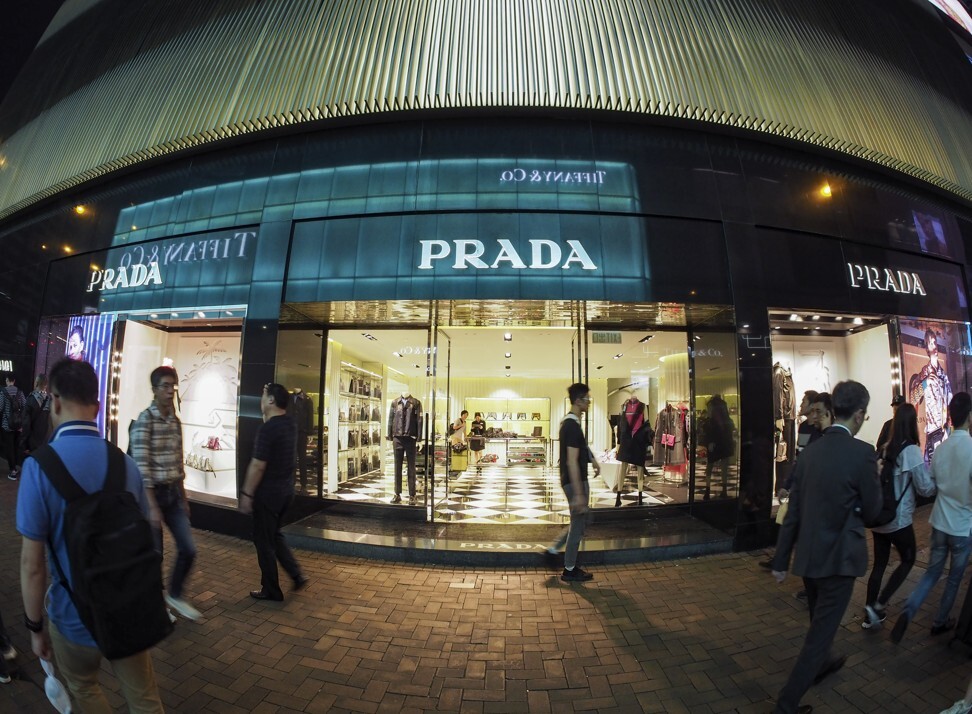
Prada was the first global luxury retailer to shut a store in Russell Street in 2020. Photo: Martin Chan alt=Prada was the first global luxury retailer to shut a store in Russell Street in 2020. Photo: Martin Chan
In recent months, top global brands Valentino, Chloe and Victoria's Secret have closed their flagship stores in Tsim Sha Tsui, Central and Causeway Bay respectively.
Russell Street has long been a magnet for international brands opening flagship stores in Hong Kong. At the moment, jeweller Tiffany & Co. and fashion label Burberry still operate large stores on the street. Earlier this summer, when asked about possible closures in Hong Kong, where Burberry has 12 stores, CEO Marco Gobbetti told the Post that for now the British label has no plans to shut any of them, including its Russell Street store.
That is likely to change if Burberry's next-door neighbours there end up being mass-market brands. That would change the look of the street and decrease its allure among luxury labels, as has happened in other parts of Causeway Bay and elsewhere in Hong Kong.
Advertisement
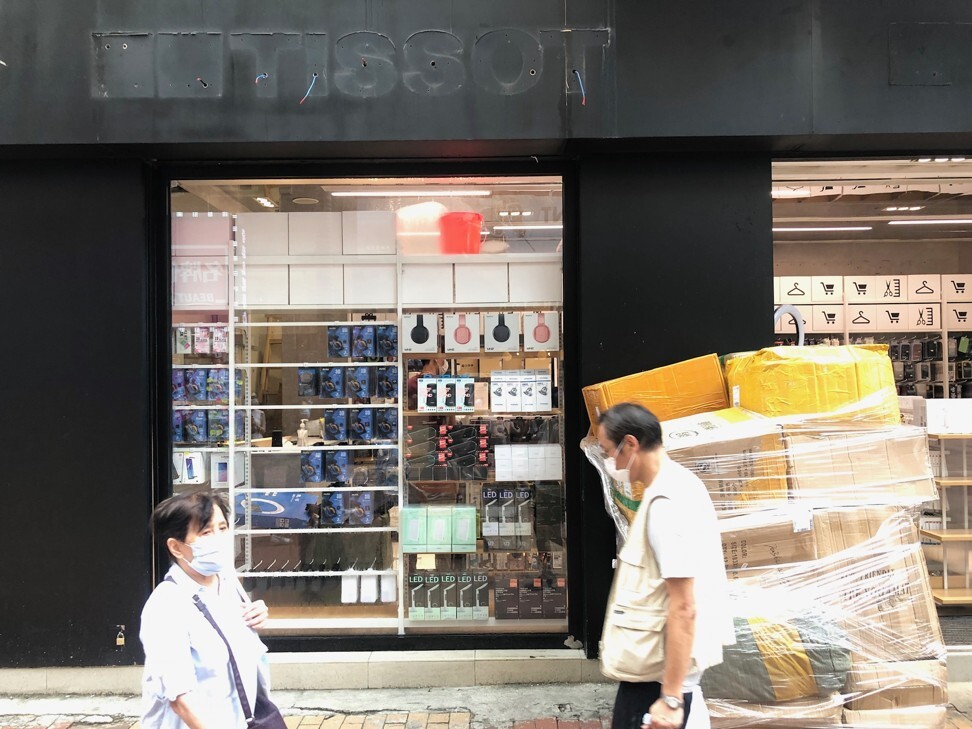
The shop vacancy rate has risen sharply on Russell Street in Causeway Bay, once the world's most expensive shopping street. A sundry goods seller occupies a store until recently occupied by watchmaker Tissot. Photo: Pearl Liu alt=The shop vacancy rate has risen sharply on Russell Street in Causeway Bay, once the world's most expensive shopping street. A sundry goods seller occupies a store until recently occupied by watchmaker Tissot. Photo: Pearl Liu
In the city's Central district, for instance, a prime storefront on Queen's Road Central, previously occupied by a luxury watch emporium, is being fitted out for a branch of the Japanese discount chain Don Quijote, known for its bargain-basement prices and for selling everything from sex toys to green-tea-flavoured Kit Kat chocolate bars.
The same fate could await what was formerly the world's priciest commercial real-estate strip if tourist arrivals don't rebound to pre-Covid 19 and pre-protest levels and if landlords are not willing to meet tenants' demands for more rent concessions now that Hong Kong is no longer the No 1 cash cow in the world for high-end labels.
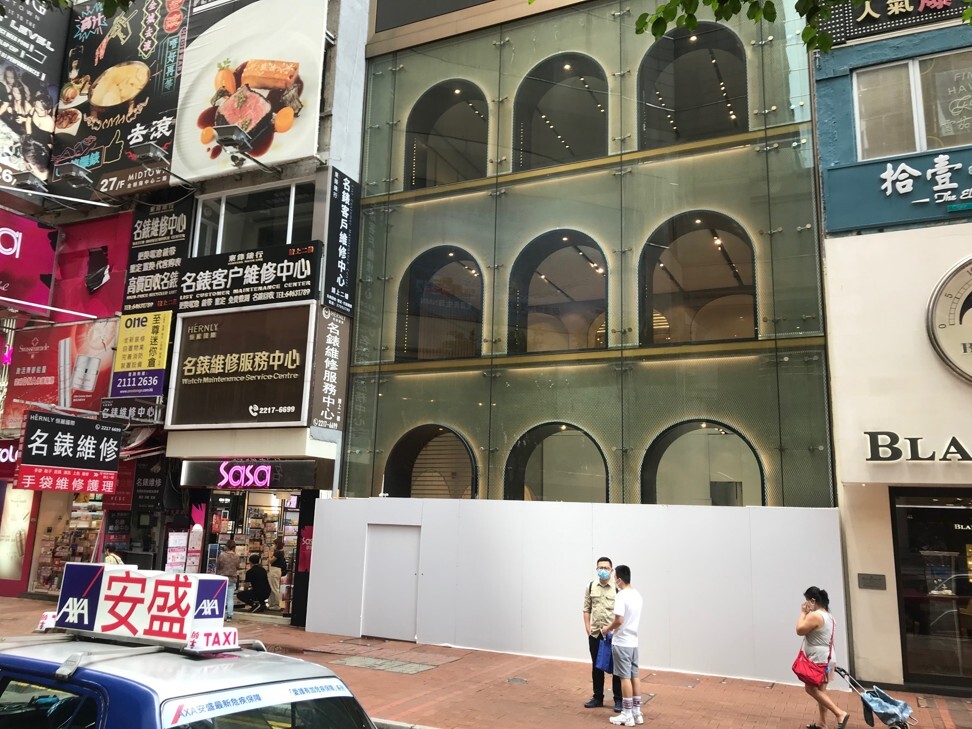
The former La Perla store on Russell Street, for which the rent was over US$900,000 per month. alt=The former La Perla store on Russell Street, for which the rent was over US$900,000 per month.
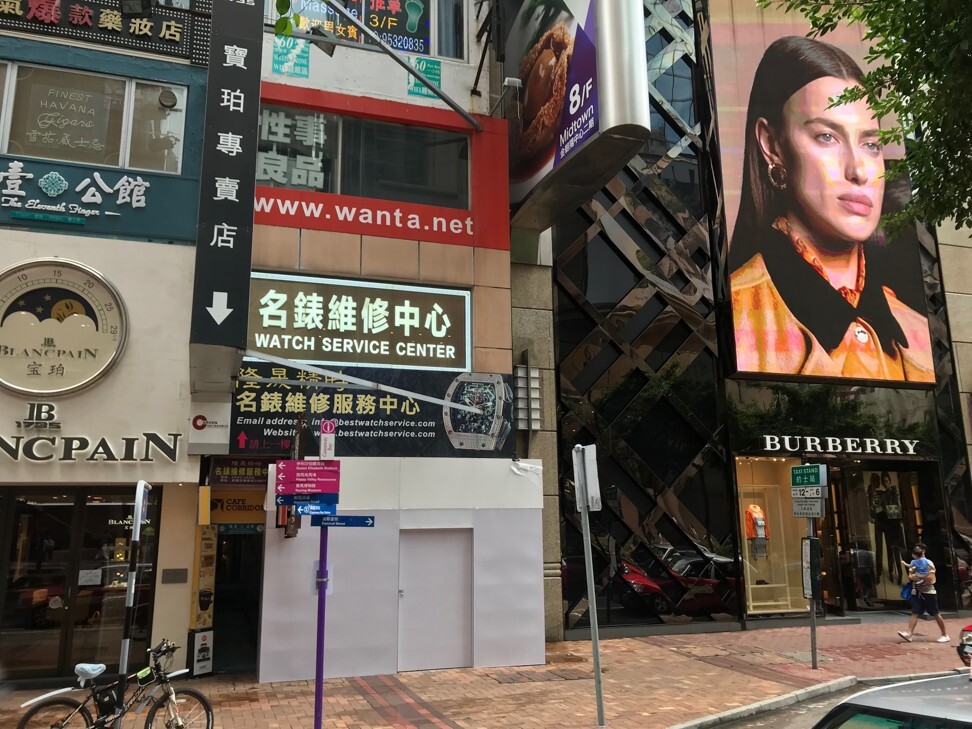
The former Kiehl's store on Russell Street. Photo: Vincenzo La Torre alt=The former Kiehl's store on Russell Street. Photo: Vincenzo La Torre
"It's hard to predict the trade mix at the moment, not until the borders open when tourists and business travellers can visit Hong Kong freely, at least not in six to nine months' time," says Kevin Lam, executive director and head of retail services at Cushman & Wakefield in Hong Kong.
"But one thing is for sure: luxury brands are leaving Russell Street. They tend to stay within a shopping mall (like Lee Garden or Sogo in Causeway Bay) due to the supportive measures and more controlled trade mix in the mall."
Additional reporting by Sandy Li
Get the latest insights and analysis from our Global Impact newsletter on the big stories originating in China.
This article originally appeared in the South China Morning Post (SCMP), the most authoritative voice reporting on China and Asia for more than a century. For more SCMP stories, please explore the SCMP app or visit the SCMP's Facebook and Twitter pages. Copyright © 2020 South China Morning Post Publishers Ltd. All rights reserved.
Copyright (c) 2020. South China Morning Post Publishers Ltd. All rights reserved.
https://www.edgeprop.sg/property-news/luxury-stores-exit-russell-street-hong-kong-once-worlds-priciest-retail-strip-amid-tourist-slump


Follow Us
Follow our channels to receive property news updates 24/7 round the clock.
Subscribe to our newsletter
Advertisement
Advertisement
Advertisement
Top Articles
Search Articles